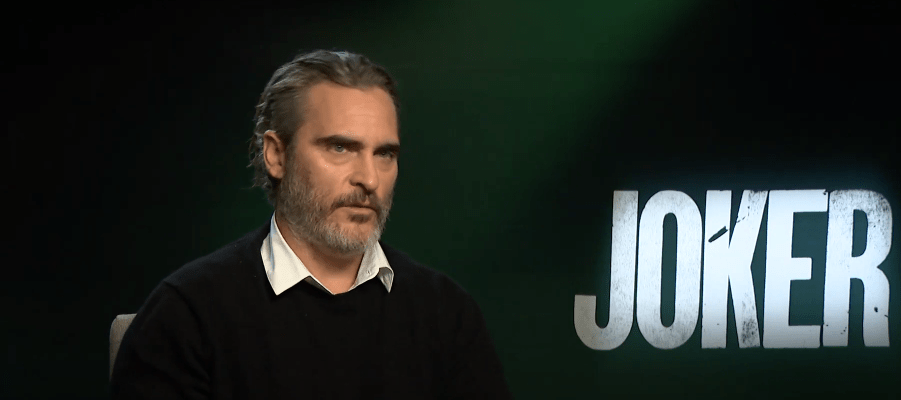Joaquin Phoenix’s dramatic weight loss for the role of Arthur Fleck in Joker was a psychological and physical transformation. Phoenix lost an incredible 52 pounds to portray the character’s skinny, undernourished appearance, making it one of the most talked-about makeovers in recent movie history. His technique? a strict diet that mostly consists of steamed vegetables and lettuce, intended to physically represent his character’s internal conflict. But the process wasn’t only physically taxing; it was also a mentally taxing experience.
Phoenix has been especially outspoken about the psychological toll that losing weight had on him. He clarified that losing so much weight in such a short period of time had a significant psychological impact on him. He commented, “You start to go mad when you lose that much weight in that amount of time,” revealing how physically starving himself enabled him to relate to the mental collapse his character goes through. This was more than just a dietary decision; it was a way to perfectly capture Arthur Fleck’s loneliness and descent into insanity. Phoenix vowed never to go through such a process again for a role because of the drastic weight loss and the psychological effects it had. He highlights in this statement, which represents a turning point in his career, that his physical and mental well-being are just as important as his commitment to his craft.
Personal Information and Career Highlights of Joaquin Phoenix
| Attribute | Information |
|---|---|
| Full Name | Joaquin Rafael Phoenix |
| Born | October 28, 1974 (Age: 50) |
| Place of Birth | San Juan, Puerto Rico |
| Career | Actor, Producer, Activist |
| Notable Roles | Arthur Fleck in Joker, Freddie Quell in The Master, Johnny Cash in Walk the Line |
| Awards | Academy Award (Best Actor, Joker), Golden Globe Awards, BAFTA Awards |
| Height | 5’8″ (173 cm) |
| Link for More Info | Joaquin Phoenix IMDb |
Phoenix’s psychological suffering highlights a major problem in the movie business: the mental and physical strain that actors must endure in order to play complicated parts. Even though Phoenix’s weight loss is impressive, it highlights a larger pattern in which actors overextend their bodies to maintain authenticity. However, this trend begs the crucial question: how much does it cost to undergo such changes?

Remarkably, Phoenix’s dedication to his craft isn’t just about appearance. His commitment to understanding Arthur Fleck’s psyche was just as important as his physical transformation. In fact, Phoenix immersed himself in the character’s mental and emotional struggles, something that went far beyond merely losing weight. The actor’s deep dive into Arthur’s troubled world made his portrayal even more impactful, lending an eerie authenticity to Fleck’s descent into madness. This transformation from a healthy actor to a gaunt figure is symbolic of the character’s unraveling, turning Phoenix’s weight loss into a narrative tool rather than just a physical change.
Despite the overwhelming success of his performance, Phoenix’s reflection on his role suggests a deeper understanding of the personal cost involved in such physical transformations. The actor’s candid comments about the psychological effects of his weight loss journey offer a rare insight into the often hidden struggles of those in Hollywood who undergo similar extreme changes for their craft. Phoenix himself has admitted that he’s unlikely to push his body to such extremes again, a decision that speaks volumes about the need for balance between artistic commitment and personal well-being.
Phoenix’s journey with weight loss isn’t an isolated case, either. Over the years, numerous actors have undergone dramatic physical transformations for their roles, a trend that continues to captivate audiences. Christian Bale’s notorious weight fluctuations for films like The Machinist and American Hustle have drawn attention to the intense pressure placed on actors to alter their physical appearances. These transformations, while garnering praise for their dedication, also raise questions about the long-term effects on an actor’s health. In Phoenix’s case, his commitment to portraying Arthur Fleck in the most authentic way possible led him to sacrifice his own well-being, though he’s now reassessing the wisdom of such extremes.
The increasing trend of extreme physical transformations in Hollywood is causing concern among critics and health professionals alike. The physical toll that such extreme measures can take on an actor’s body has sparked debates about the ethics of requiring such drastic changes. Phoenix’s comments about the mental impact of his weight loss process highlight the fact that actors’ mental health often becomes intertwined with their physical appearance. This dual toll on body and mind could have long-lasting consequences, both for the actor and for the industry that demands such transformations.
For Phoenix, the extreme physical changes were crucial to his performance. Yet, they also revealed something deeper about the culture of method acting and the pressures faced by actors in Hollywood. The dedication required to achieve the perfect look for a role should never come at the expense of an actor’s physical and mental health. This growing awareness has led many in the industry to rethink how far an actor should go for a role, and what responsibility filmmakers have in ensuring their cast members’ well-being.
Looking forward, the conversation around extreme physical transformations for roles is likely to evolve. As awareness grows about the mental and physical risks involved, the industry may shift toward more sustainable and healthier methods of transformation. Phoenix’s reflections on his experiences could pave the way for future actors to approach roles with a greater understanding of the personal costs involved. While the industry may continue to demand transformative performances, it will hopefully recognize the importance of prioritizing the well-being of its stars.
